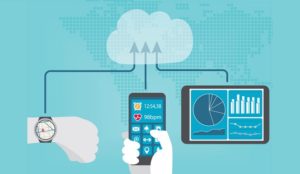

With smartphones entering every facet of our lives, the survey aimed to understand how mobile devices are altering lives and relationships of users. In the report, it was found that 75% of the respondents agreed to have owned a smartphone in their teens and of them, 41% were hooked to phones even before graduating from high school. From showcasing the benefits to the depth of addiction, the study tried to understand the behavioral changes pertaining to smartphone usage.


‘Smartphones and their Impact on Human Relationships’ report is based on a survey conducted online as well as face to face across top 8 cities in India. The report cuts across age-groups and demographics: youth, working professionals, housewives spanning the age groups of 18 to 45. The total number of respondents were 2000 out of which 36% were females and 64% were males.
According to Nipun Marya, Director Brand Strategy, vivo India, “Smartphones are ubiquitous in our lives today, be it connecting with friends, family, entertainment, eating out or even travel or entertainment. As the “born in the net” generation grows up as digital natives, there is a fundamental change underway within society – redefining relationships, interactions and the very fabric of human emotions and exchanges. This transformation is also an opportunity to harness and drive positive change, reinforce balance and responsible proliferation of technology and its usage amongst consumers. we commissioned this study to get insight into a very pertinent issue that we collectively must address and debate as a community.”
Commenting on the survey findings, Prabhu Ram, Head-Industry Intelligence Group, CMR says, “While the explosive surge in smartphones in India has enabled Indians with not just communicating with loved ones, but with myriad other uses cases, including in consuming entertainment and in expressing themselves, our survey results demonstrate that the dependency over smartphones has increased. While smartphone will continue to be the primary go-to device, smartphone users have realized that periodically switching-off would help benefit their personal health.” Some of the key findings are as below:
- Average Indian spends 1/3rd of their waking hours on their phone, which translates to 1800 hours a year
- 30% fewer people meet family and loved ones multiple times a month (now vs 10 Years ago)
- 1 in 3 people feel that they can’t even have a 5 min. conversation with friends and family without checking their phones
- 73% respondents agree that if smartphone usage continues at the current rate or grows, that it is likely to impact your mental or physical health.
- 3 out of 5 people say that it’s important to have a life separate from mobile phone and that could help them lead to happier lives.
- More than half of the respondents have never tried to switch off from their social handles and profess to not being able to live without their phones
- Almost all respondents prefer having only virtual conversations with friends and relatives
For results based on a randomly chosen sample of this size, there is 95% confidence that the results have a statistical precision of plus or minus 2.2% of what they would be if the entire population had been surveyed.











